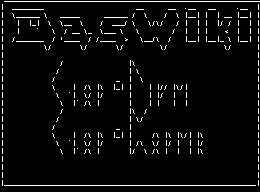Pages (Latest 10 updated) :
Menu (Edit):
- Das Wiki
- zsh.md
- zoneminder.md
- yubikey.md
- yasnippet.md
- xprofile.md
- xmonad.md
- wpa_supplicant.md
- wp3.md
- windows.md
Menu (Edit):
Link List (Edit):
Contents:
# ____ _ ____
# / ___|_ __ ___ __ _| |_ ___ | _ \ __ _ ___ _ __ ___ ___ _ __ ___
# | | | '__/ _ \/ _` | __/ _ \ | | | |/ _` |/ _ \ '_ ` _ \ / _ \| '_ \/ __|
# | |___| | | __/ (_| | || __/ | |_| | (_| | __/ | | | | | (_) | | | \__ \
# \____|_| \___|\__,_|\__\___| |____/ \__,_|\___|_| |_| |_|\___/|_| |_|___/
#
Creating Daemons
There are three known ways to configure a task to run in the background; you can configure a shell script, use the threading module, and use the multi-process module.
Using the multi-process module
def proc_daemonize():
mp.set_start_method('spawn')
the_daemon = mp.Process(target=start_process, args=(), name='daemon', daemon=True)
daemon = False
if daemon:
log.info('Daemonizing & sending to background...')
the_daemon.start()
the_daemon.join()
else:
log.info('Running in foreground...')
exit(0)
Using the Threading Module
From Super Fast Python
# SuperFastPython.com
# example of a long-running daemon thread
from time import sleep
from random import random
from threading import Thread
# long-running background task
def background_task():
global data
# record the last seen value
last_seen = data
# run forever
while True:
# check for change
if data != last_seen:
# report the change
print(f'Monitor: data has changed to {data}')
# update last seen
last_seen = data
# block for a while
sleep(0.1)
# global data
data = 0
# create and start the daemon thread
print('Starting background task...')
daemon = Thread(target=background_task, daemon=True, name='Monitor')
daemon.start()
# main thread is carrying on...
print('Main thread is carrying on...')
for _ in range(5):
# block for a while
value = random() * 5
sleep(value)
# update the data variable
data = value
print('Main thread done.')
 Anoduck's Das Wiki
Anoduck's Das Wiki